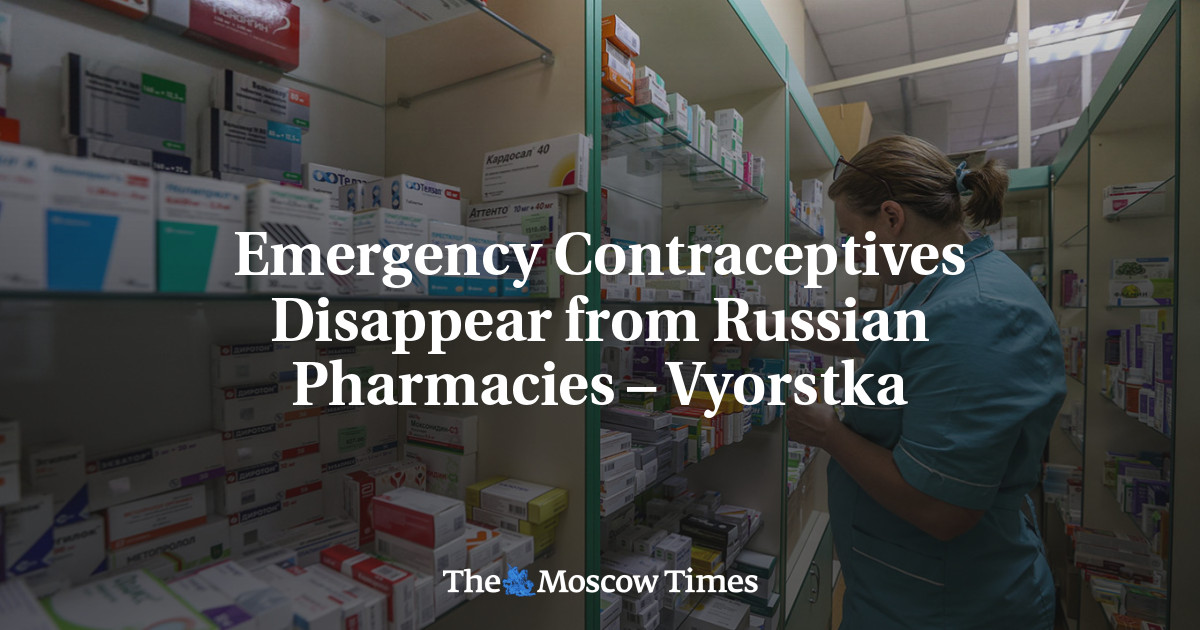More than 150 beaches along Russia’s southern Black Sea coast remain unsuitable for summer vacations due to ongoing contamination from a recent oil spill, the head of Russia’s consumer safety watchdog said Friday.
Oil slicks continue to be detected off the coast of Anapa, a popular resort town in the Krasnodar region, nearly four months after two aging Russian tankers were damaged in a powerful storm. The vessels released thousands of tons of heavy fuel oil into the sea, sparking an environmental crisis that has since cast serious doubt over the upcoming tourist season.
“The Temryuksky district and the coastal areas of Anapa don’t meet the requirements for organizing summer resort holidays,” Rospotrebnadzor chief Anna Popova told reporters, according to the Interfax news agency.
“At present, 141 beaches in Anapa and nine beaches in Temryuk have failed to meet pollution, sanitary and hygiene standards and cannot be used for health and recreational purposes.”
The Temryuksky district lies just east of the Kerch Strait and borders annexed Crimea, another popular summer destination. Emergency workers have been deployed across affected areas to contain the spill and clean up contaminated coastlines, including beaches on the annexed Crimean peninsula.
Despite the pollution, Russian authorities have continued to organize spring and summer trips to the affected areas for groups, including children with disabilities, raising safety concerns.
In January, a 17-year-old university student died in Anapa after he was reportedly exposed to toxic fumes during volunteer efforts to clean up the oil spill.
Still, on Friday, Popova offered a more optimistic assessment of the situation in Crimea and its port city of Sevastopol.
“More than 6,000 samples tested... have shown no violations of hygienic norms,” she said, crediting rapid cleanup work for the relatively safe conditions. In contrast, over 60,000 samples were analyzed in the more severely affected Anapsky and Temryuksky districts.
Popova noted that while “small spills” continue to be observed along the coast, they are being localized and contained swiftly. They “don’t affect the overall condition of the coastline,” she said.
The spill and slow cleanup effort have already caused a steep drop in tourist demand for Anapa, threatening local economies that rely heavily on seasonal visitors. Last month, the government environmental watchdog Rosprirodnadzor said the oil spill had caused an estimated 84.9 billion rubles ($1 billion) in environmental damage.
The companies that own the two oil tankers involved in the disaster face multiple lawsuits from regional prosecutors, the Russian Maritime Rescue Service and the city of Anapa, which in March said that it had spent 211 million rubles ($2.4 million) on beach cleanup since the Dec. 15 spill.
A Message from The Moscow Times:
Dear readers,
We are facing unprecedented challenges. Russia's Prosecutor General's Office has designated The Moscow Times as an "undesirable" organization, criminalizing our work and putting our staff at risk of prosecution. This follows our earlier unjust labeling as a "foreign agent."
These actions are direct attempts to silence independent journalism in Russia. The authorities claim our work "discredits the decisions of the Russian leadership." We see things differently: we strive to provide accurate, unbiased reporting on Russia.
We, the journalists of The Moscow Times, refuse to be silenced. But to continue our work, we need your help.
Your support, no matter how small, makes a world of difference. If you can, please support us monthly starting from just $2. It's quick to set up, and every contribution makes a significant impact.
By supporting The Moscow Times, you're defending open, independent journalism in the face of repression. Thank you for standing with us.
Continue
![]()
Not ready to support today?
Remind me later.
 (1).png)
 2 months ago
15
2 months ago
15

















